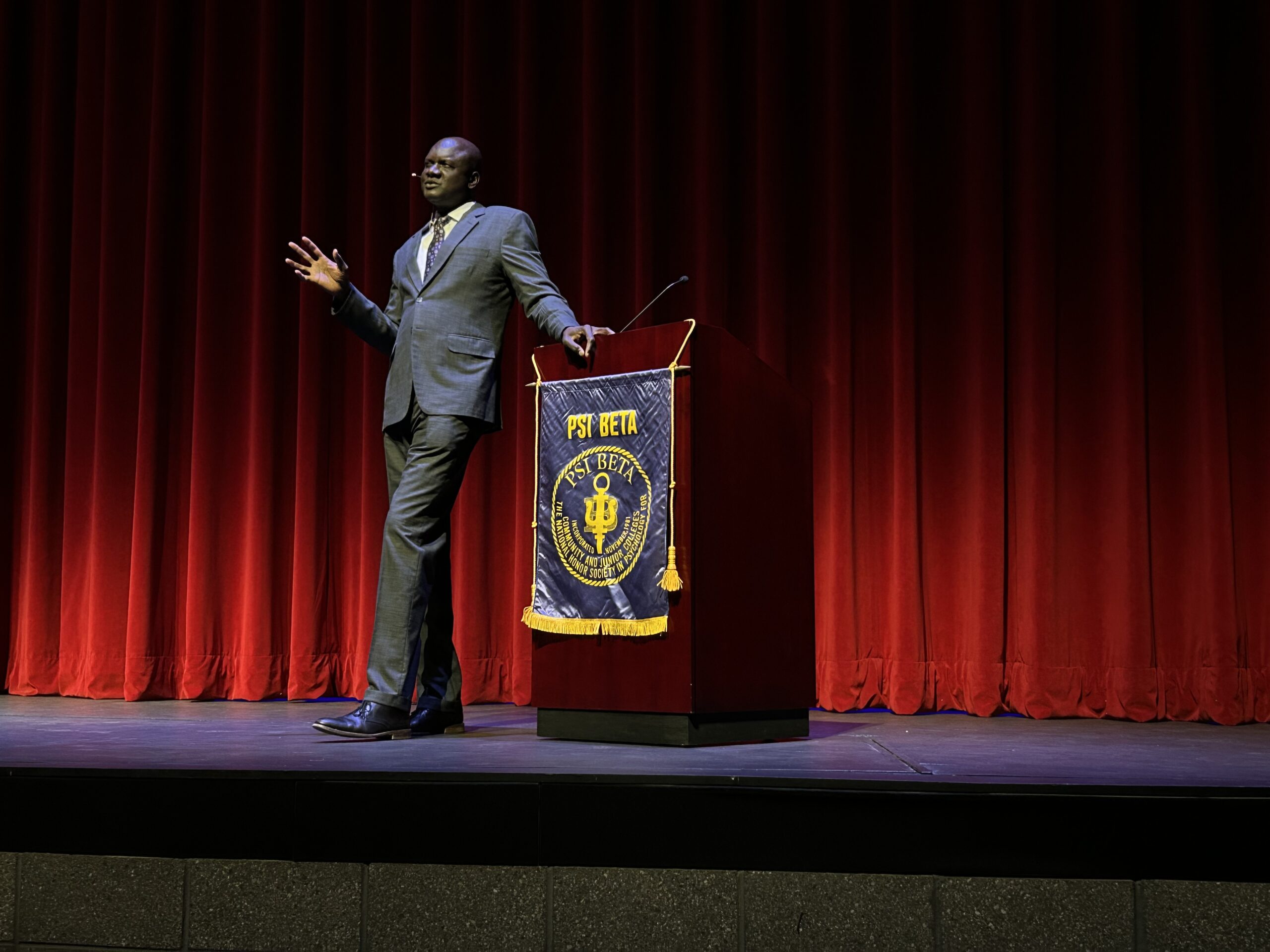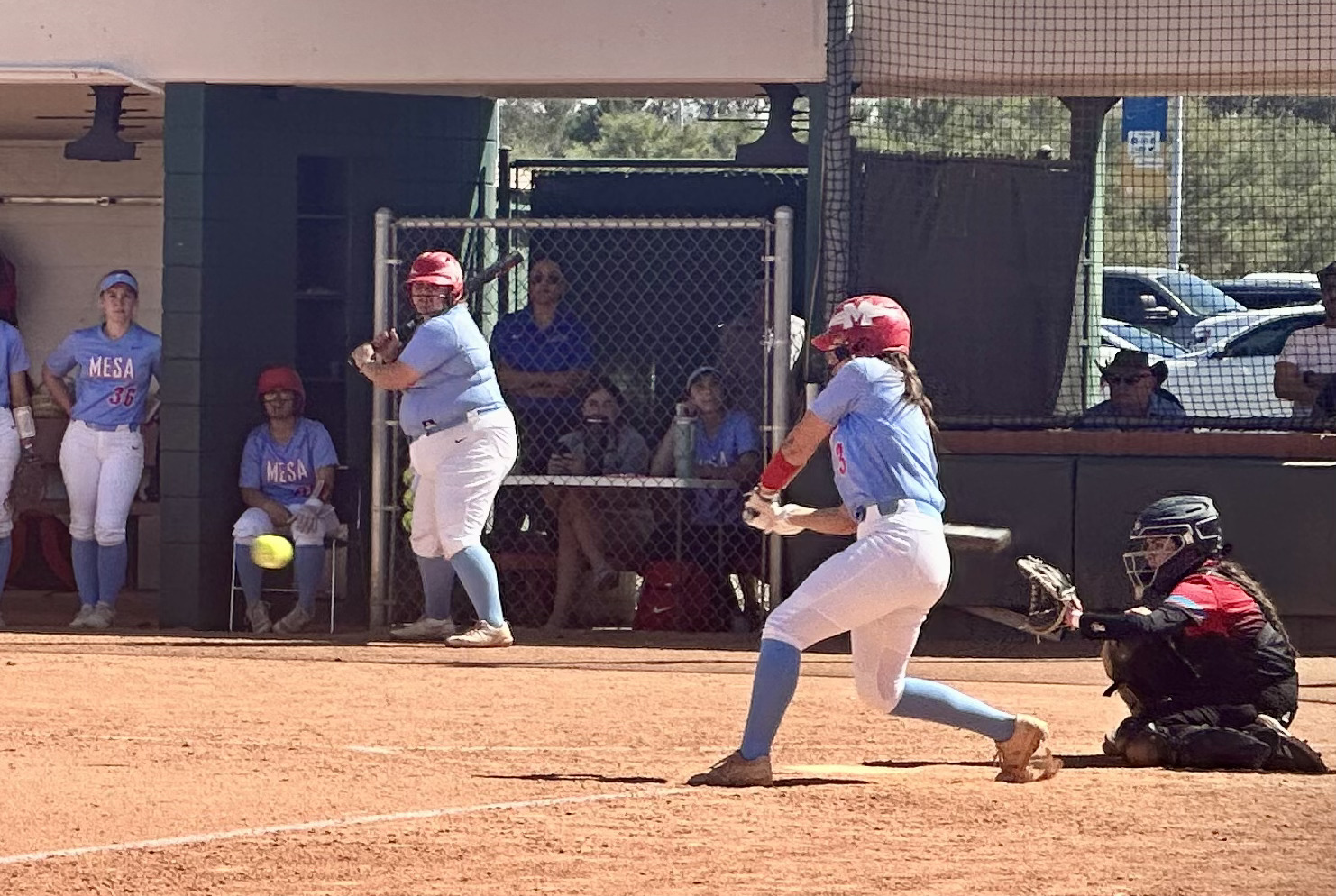Greenwashing: Profit Scheme or Environmental Movement
Ryan Garner
The Environmental Action Club (EAC) spoke out against greenwashing in their last meeting.
Suzi Dodt, MCC’s environmental sustainability coordinator for the last two years, identified the real threat.
“Packaging companies might say, ’25 percent less of this or that,’ and it may not be the greatest idea, but if the advertisers word it a certain way, consumers fall for it,” she said.
According to members of the EAC, greenwashing is the sinister force behind the curtains of the good-natured environmental movement.
Brandon Baldwin, EAC president and pre-med student, expressed concern over the growing gap between activists and the unwashed masses.
About the greenwashing scare tactics, Baldwin said, “People aren’t deluded, just ignorant. We have one biosphere and if we are poisoning it, we are poisoning ourselves.”
Baldwin heads the club under the close supervision of Ron Dinchak, education and environmental veteran.
Dinchak began at MCC when he was 23 years old and has been a major proponent for environmental change and activism throughout his tenure.
Aside from being the founder of the Xeriscape, MCC’s own desert garden, he supervises the student-run EAC.
Dinchak reiterated the balance between true environmental activism and the danger of greenwashing.
“There’s a fine line between legitimate eco-companies and those that just throw the facade on. (For them) it’s all about profit,” he said.
In regards to the shift over the course of multiple generations, Dinchak said, “(In my generation) no one thought about where things came from … up until about the 1970s … the current generation has disposable everything.”
Disposable indeed, as overflowing trash bins around campus seem to reinforce that notion daily.
Dodt proposed a hypothetical example in which everyone on campus drank one bottle of water per day for one year. Her assumed recycling figure was quite generous as well. “Assuming 28 percent of plastic water bottles made it into the blue bin, if you apply the statistic to MCC, 10,259,000 bottles would be trashed, and roughly 2.8 million of them would be recycled,” she said.
In a well-known study by Catherine Clarke Fox from National Geographic, roughly 17 million barrels of crude oil are used to produce the nation’s water bottle necessity.
Alan Korwin, local author, publisher, and media watch dog, has been trying to help people “connect the dots” for years.
“I’ve been watching the lack of skill and failure to make corrections in the media. The media has a tendency to present the world as a series of disasters,” he said.
In his scenario, he describes a tsunami leading into a hurricane, into a plane crash, into a terror attack, etc.
On greenwashing, Korwin said, “A company advertising discussion might pan out similar to this, ‘We are using 60 million tons of plastic. Wait, don’t say that. Say we are using less plastic than we used to.’ There’s just no ethics. They obfuscate, deny, and then change the subject.”
Regarding the possibilities moving forward, all parties seemed optimistic but speechless over finding true resolution.
“We have little fissionable material,” Baldwin said. “If we all used nuclear power we would run out of fissionable material in roughly seven years ,but in the Southwest, we have, as a state, enough square area that receives full sun to be the top producing solar energy industry in America.”
Baldwin advocated the age-old adage of recycle, reduce and reuse but said, “Those three aren’t the only ingredients for sustainable futures. A higher general awareness of our consumption both in physical goods (is required).”
“If you can reuse something before you even consider recycling it, that’s the greatest benefit. Recycling is good thing because it creates a movement. As long as it’s certified or self-researched,” he said.
Baldwin also mentioned several examples of families in the United States that have willfully “unplugged” and attempted to live “outside the grid” (terms for running a fully sustainable home). While he couldn’t demand that all Americans choose this way of life he did say, “Find out what you can do and try to fulfill it. Anything is better than nothing: More is better.”
Dodt alluded to future energy projects on the horizon, “Places like Arizona can do solar but maybe not wind. Still though, it reduces energy use. You’ve got to catch the low hanging fruit.”
Meanwhile, Korwin gave a counter-point.
“Solar and wind will likely be science projects for years to come, (even while there is sun and wind) and since the ‘enviros’ are afraid of nuclear,” he said.
The larger picture starts to become clearer.
With nuclear power receiving one black eye after another, with the Fukushima disaster, and with the apparent lack of nuclear materials to create energy with, a question is raised about the possibility of the nation regressing back towards fossil fuels.
“How exactly does the nation plan on running its fleet of electric cars?” Korwin asked.
Though it looks bleak, there are companies trying to make a difference. TerraCycle makes tote bags out of Capri Sun packages and three-ring binders remade out of Chips Ahoy boxes. And for the on campus push, the EAC holds meetings weekly in the life science building, and assists with local second graders by teaching them science.
Additionally, the club hosts at the campus greenhouse weekly in order to provide hands-on training for sustainability.
“If our campus is an example of the push for sustainability, then we’re making a lot of headway,” Dinchak said.









